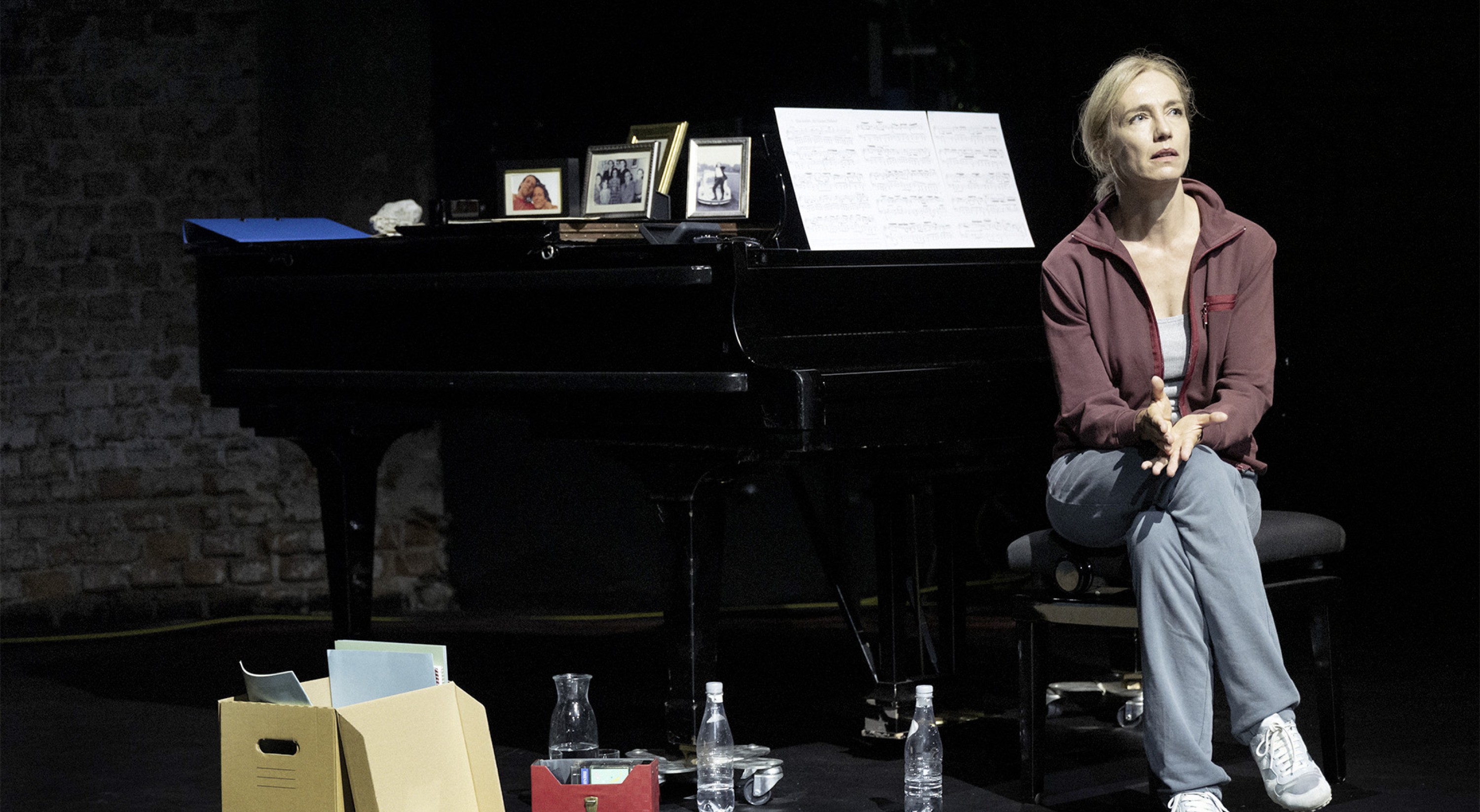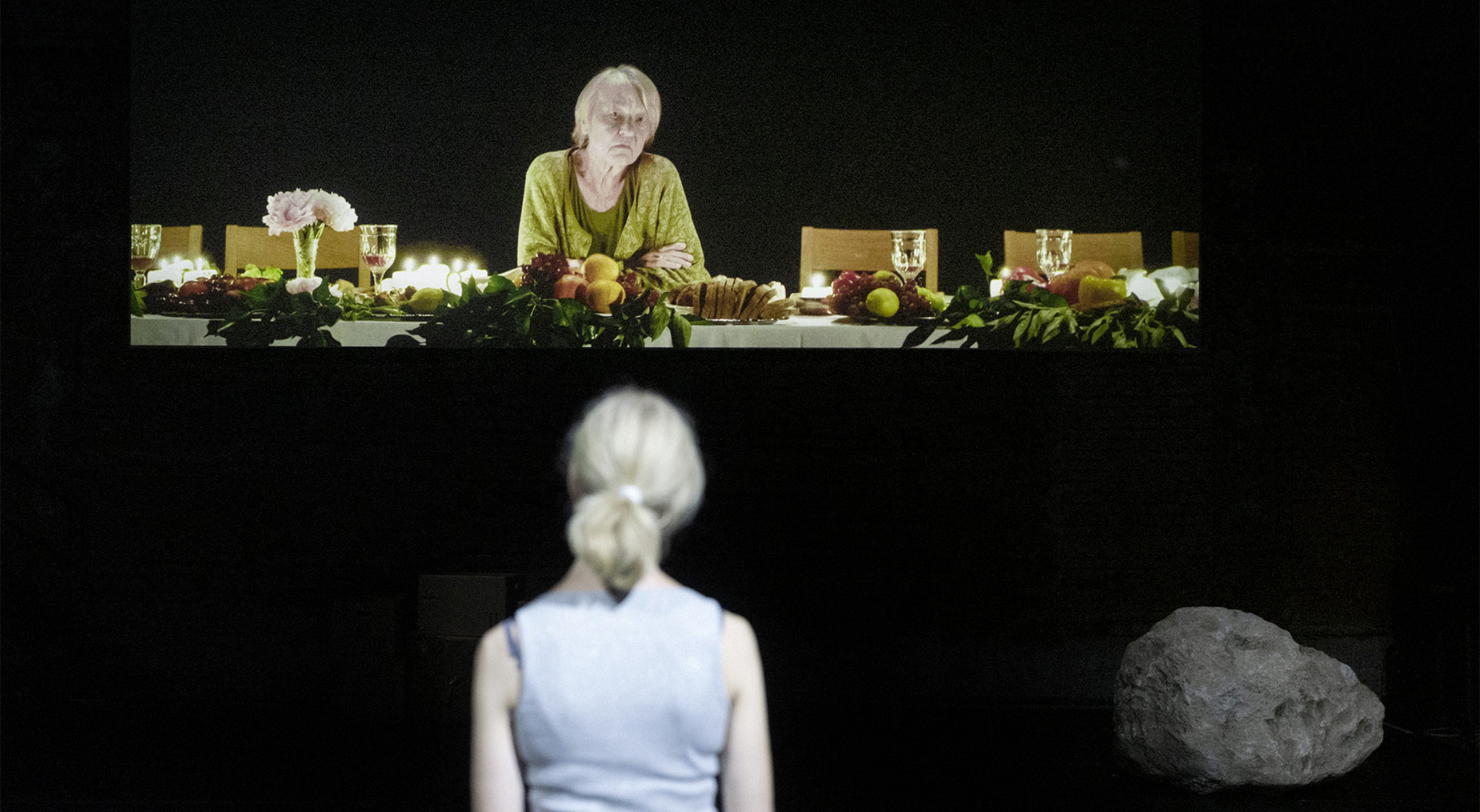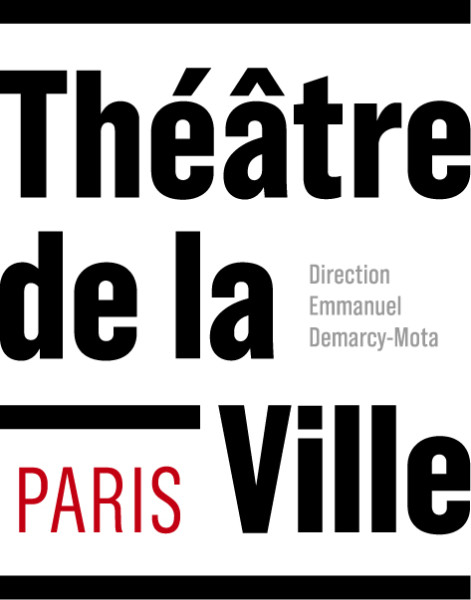Milo Rau
Everywoman
octoberoct 20 – 28
Staging, Milo Rau
Texts, Milo Rau, Ursina Lardi
Featuring Ursina Lardi, Helga Bedau (video)
Décor et costumes, Anton Lukas
Costume assistant, Ottavia Castelotti
Video, Moritz von Dungern
Sound, Jens Baudisch
Stage work, Carmen Hornbostel, Christian Tschirner
Research, Carmen Hornbostel
Lights, Erich Schneider
Figuring, Georg Arms, Irina Arms, Jochen Arms, Julia Bürki, Keziah Bürki, Samuel Bürki, Achim Heinecke, Lisa Heinecke (Video)
Produced by Schaubühne Berlin
Co-produced by Salzburger Festspiele
Co-directed by Théâtre de la Ville-Paris, Festival d’Automne à Paris
In Everywoman, Milo Rau brings to the stage an intimate piece on the subject of death. By means of a video with a woman suffering from an incurable disease, the actress Ursina Lardi sets up a dialogue. This imminent demise is used as the basis for a reflection on the existence, in which the act of sharing reveals itself to be a source of solace in the face of the inevitable.
In 2020, at the height of the Covid-19 pandemic, a woman wrote to an actress: she does not have long left to live and regrets that she will no longer be able to go to the theatre – though she would so dearly have loved to take to the stage herself. Sometime later, Ursina Lardi and Milo Rau went to meet Helga Bedau at her house, in Berlin, and filmed her. In the form of a response to her dying wishes, the former school-teacher thus finds herself being transported to the stage, in a piece in which Ursina Lardi enters into a dialogue with her via the recording. Death, of course, lies at the heart of their discussion. This approach, which draws upon the experiences of the two women as a means of inciting us to question the finite nature of our lives, is both a philosophical and personal one. As a counterpoint to Jedermann (« all man »), an allegorical piece by Hugo von Hofmannsthal based on the death of a man, Everywoman questions, in a very tangible way, the essence of life, but also the ritual of theatre as a collective practice. And what if death only became acceptable from the moment we cease to be alone?
In the same place


